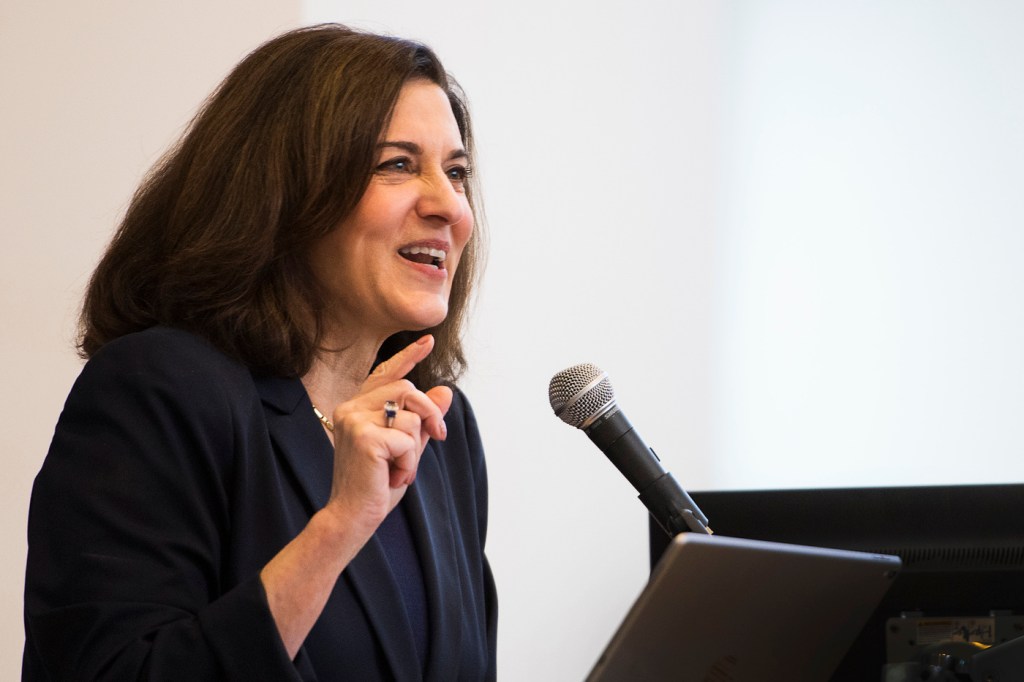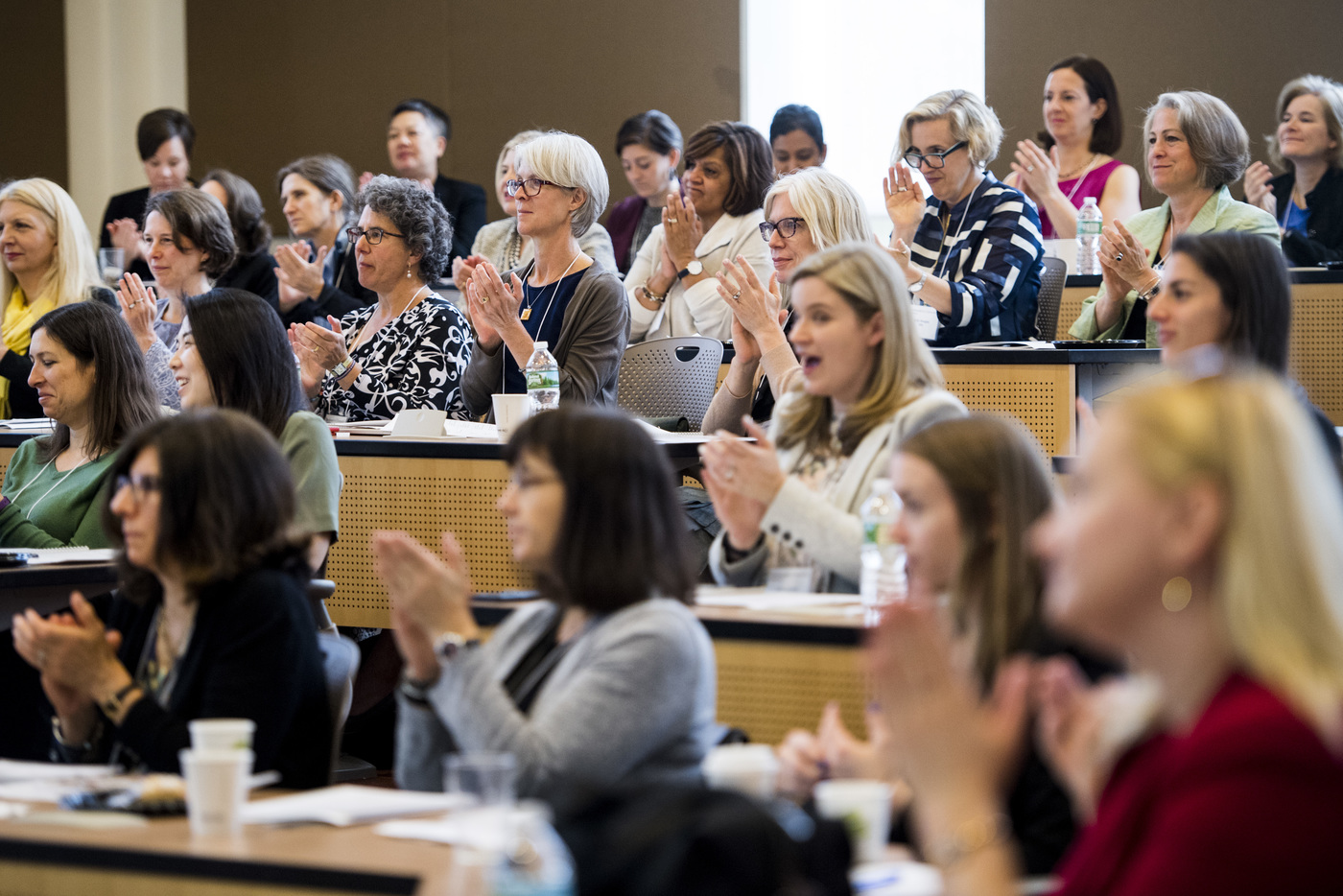‘Change requires the courage to act’

When attorney Victoria Reggie Kennedy was looking for a clerkship after law school in the 1980s, she applied to work with a U.S. Court of Appeals judge who, seeing she was a woman, wrote back, “My dear Miss Reggie, frankly, I hold out no hope.”
Years after receiving that stark rejection, and with many accomplishments to her name as a lawyer and nonprofit leader, Kennedy found herself sitting next to that very same judge at an event. He didn’t recognize her and she didn’t bring it up, but she took satisfaction from having proven him wrong, she said.
“What I learned is not to be afraid of rejection, not to be afraid of failure,” she told a standing-room only crowd in her keynote address at the 10th annual Women in the Law conference, hosted by Northeastern’s School of Law.

Kennedy is senior counsel in the corporate and securities practice group at Greenberg Traurig; president of the board and co-founder of the Edward M. Kennedy Institute for the U.S. Senate; and chair of the education committee for the John F. Kennedy Center for the Performing Arts. She was actively involved in the passage of the Affordable Care Act and was there when President Barack Obama signed it into law, and she has been a leading voice for the empowerment of women and girls.
The Women in the Law conference is a daylong event designed to provide career guidance and professional development growth to women attorneys and other professionals.
In the early 80s, Kennedy earned a clerkship with Robert Sprecher, a seventh circuit judge at the time, bucking a history of sexism in hiring. It was a position that had both lasting impact for her and other female graduates of Tulane University Law School, her alma mater.
“My clerkship certainly opened doors for me but also to other graduates from Tulane,” she said. “That’s the ripple effect of change, of action, of a decision to take charge of your own life.”
Kennedy said that hers has been a life at the forefront of change—even before it began.
What I learned is not to be afraid of rejection, not to be afraid of failure.
Victoria Reggie Kennedy, Lawyer, Civic Advocate, and non-profit leader
Her grandmother, who had come to the United States from Lebanon when she was 19, made a choice to stay and raise a family. Because of the opportunities that choice afforded her family, Kennedy’s father became the youngest judge in the history of Louisiana. Kennedy’s mother was the first woman in her own family to go to college, a choice that paved the way for her younger sister, Kennedy’s aunt, to do the same.
Kennedy was among few women at her first law firm. So few, in fact, that when she was ready to start a family of her own, she had to help develop a paid maternity leave policy for the entire firm.
“We all, in our own lives, have to decide to be that agent of change,” she said. “It’s a conscious choice—think about where your talents lie and how you can become involved. And, if you have the courage of your convictions, vote. Our foremothers fought for us to have the right to vote and it’s crucial that we use it.”
Kennedy’s call to action stems from her involvement in civic work.
After the death of her husband, former U.S. Sen. Edward M. Kennedy, Victoria Kennedy established the Edward M. Kennedy Institute for the U.S. Senate, a center dedicated to the public education of the importance of the senate.
“I don’t mean to sound grandiose, but I feel I have a patriotic responsibility to save our democracy and do everything in my power to uphold it,” she said to a standing ovation.
Change, she said, starts at the individual level and ripples out.
“Change requires the courage to act,” she said. “It happens when we make a decision that we won’t accept the status quo, that we won’t let life happen to us. Instead we’ll make life happen for us. The change one person makes impacts the lives of countless others.”
While the U.S. Court of Appeals judge from years past may not have held out hope for the future, Kennedy does.





